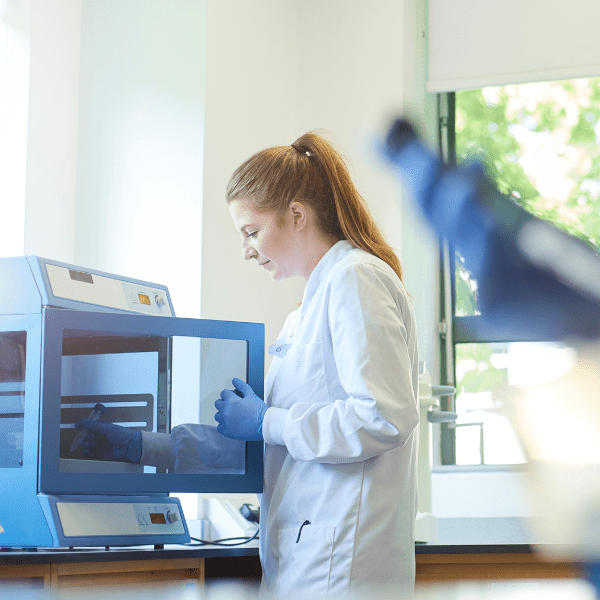It is widely acknowledged that investing in research and development (R&D) is essential for every company in order to stay relevant and competitive in today’s fast-moving world. Us Irish thrive on exciting and innovative ideas, and our colleges and universities are producing some of the most exciting cutting-edge R&D. But while we have the ideas and the talent to develop them, R&D can be costly, in terms of both time and money, and many SMEs struggle in funding adequate R&D.
The Irish Government and Enterprise Ireland has long recognised that the key to ensuring that great ideas can evolve into new products and solutions is developing and strengthening links between public research opportunities and business. To help, in 2013, the Department of Enterprise, Trade and Employment established Knowledge Transfer Ireland (KTI) to help get technology, ideas and expertise from State-funded research into the hands of every business.
“We believe that our potential as a country can be unlimited when the forces of third level research and businesses are combined with a common goal and purpose to deliver more advanced solutions for industry and society,” explains Elizabeth Carvill, Senior Executive at KTI.
Essentially, KTI acts as a signpost for all businesses, from start-ups to multinationals, allowing them access to Ireland’s research system quickly, easily and effectively and allowing them to engage in the process of knowledge transfer.
“Knowledge transfer is an effective way to help companies build on key areas of innovation capability,” says Elizabeth. “Knowledge transfer is enabled through collaborative or contract research engagements between business and the third level. Outputs from these engagements, such as new technologies or intellectual property, can be used to develop new products, processes and services. This research also underpins the creation of spin-out companies.”
KTI is based in Enterprise Ireland’s headquarters in Dublin and acts as a national office making the knowledge transfer system more simple for business to access. “Part of this is to manage a funding programme on behalf of Enterprise Ireland to support Ireland’s network of Technology Transfer Offices (TTOs), also known at Innovation Offices,” says Elizabeth. “These skilled teams based in universities and Institutes of Technology oversee the process of knowledge transfer and managing relationships with companies seeking to benefit from the access to skills, technology and intellectual property from within Ireland’s third level and other research organisations.’
Quantifiable success
The success of KTI can be seen in the Annual Knowledge Transfer Survey, which is produced every year by KTI. The latest report covered 2020, a challenging year for many thanks to the start of the Covid-19 pandemic, yet the statistics are impressive. “The 2020 Survey revealed that 3,681 new R&D and consultancy agreements were made between companies and non-commercial entities and higher education institutions during the year, an increase of 39% on the previous year,” says Elizabeth. “Three-quarters of these agreements involved Irish SMEs.
“The survey also revealed that 30 spin-out companies were formed in 2020, and that there are now 128 spin-out companies still active three-plus years after incorporation. The same year saw a record number of spin-out company acquisitions (nine) with a combined value of €7.9 million, proving how attractive Irish spin-outs are to external investment.”
Elizabeth explains that many of these spin-out companies go on to become High-Potential Start-Ups, supported by Enterprise Ireland. “Some recent examples include TU Dublin spin-out Ocumetra, UCD spin-out Sirius XT, NUI Galway spin-out Neurent Medical, and Dundalk IT spin-out Nova Leah. In fact, Ocumetra, which developed a pioneering eye monitoring tool that can identify abnormal (myopic) eye growth, became an HPSU just six months after its foundation.”
Exciting success stories
And when research bodies work with commercial enterprises, some really exciting products and solutions are produced. “For example, Inferneco Ltd and IT Carlow to bring to market a bottle-sanitising system for the hospitality industry using UV light,” says Elizabeth. “Another great example is the collaboration between Grian Water and Letterkenny IT, to develop a new prototype of its MyGug water treatment product, which turns organic matter into renewable fuel.”
To enable as many businesses as possible benefit from the innovative ideas produced by our research bodies, KTI has worked hard to ensure that companies can quickly and easily find the right support for them.
“Our website contains a range of downloadable materials and resources including a research map of Ireland, a downloadable national directory of research supports and an interactive funding finder tool,” Elizabeth finishes.



